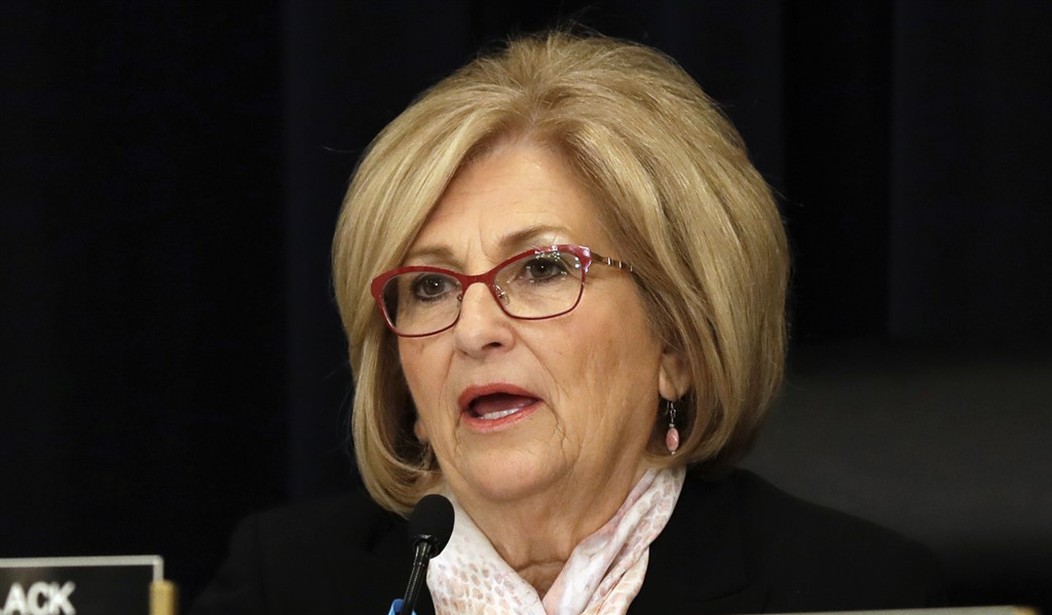Rep. Diane Black (R-TN) explained to Townhall Thursday why she thinks there is an urgent need to include her Conscience Protection Act in the upcoming, omnibus bill that must pass by March 23rd in order to keep the government funded.
The Conscience Protection Act would forbid discrimination against a health care provider based on the provider's refusal to be involved in, or provide coverage for, abortion.
“The Conscience Protection Act just simply says that the government gives us the ability to have the rights of conscience,” Black explained, “there are healthcare professionals who have lost their jobs because they have a deeply held belief, they’re pro-life and they refuse to participate in an abortion and we’ve actually had a number of cases where they’ve been fired.”
Black, a nurse herself, joined with a group of healthcare providers on Capitol Hill in November where one nurse, Cathy DeCarlo, described her own horrifying experience of being forced against her conscience to participate in an abortion at Mount Sinai Hospital in New York.
“I’ll never forget that day as I watched in horror as the doctor dismembered and removed the baby’s bloody limbs and I had to account for all the pieces,” DeCarlo said sobbing, “I still have nightmares about that day.”
An op-ed that Black wrote with another nurse, Sandra Rojas, details the financial hardship Rojas and her family faced when the Winnebago County Health Department in Rockford, Illinois fired her for refusing to provide abortion-inducing drugs and abortion referrals.
Black explained that it is simply untrue that existing law protects healthcare workers in these cases, as some assert.
Recommended
The Weldon amendment is meant to prevent federal, state and local governments that receive federal funds from discriminating against health care entities that decline to “provide, pay for, provide coverage of, or refer for abortions.”
However, Black pointed out that “it doesn’t give individuals the standing in courts,” since their only recourse under the amendment is to file a complaint with the Department of Health and Human Services, “they lose their job, they lose their income, and they have no standing in court and they just refuse to violate their conscience and their deeply held beliefs.”
She said that the limitations of the Weldon Amendment became painfully clear under the Obama administration.
“In the previous administration under the secretary there we actively had her come before us and try to defend the fact that they would not protect these nurses who had been fired,” Black said, “because they said they don’t have that protection under Weldon and that’s the purpose of this is to actually codify it so that there can be no doubt that they have the protection, if they are fired they have a remedy where they can actually go to court.”
Black is hopeful that her legislation will be included in the must-pass government funding bill. She cited a bipartisan letter sent to House leadership today and signed by 107 members.
The letter stresses the urgency of including the bill in the funding legislation, emphasizing to leadership “we must do everything in our power to see this compassionate, reasonable, and modest bill become law so that millions of Americans who believe, as we do, in the sanctity of every life are able to abide by those beliefs without having them trampled upon by their own government.”
“We’ve shown that this is actually happening in our country and that we need to protect the healthcare workers,” Black said of the need for its inclusion in the funding bill, “the time is now since this has to be passed, this should be provided as one of the provisions in there.”
Black said she was appreciative of many religious leaders, most recently the U.S. Conference of Catholic Bishops, lending their voice to this issue by pushing Congress to include her bill in the spending bill.
In response to objections that the bill would limit access to reproductive services or that it’s really about ending abortion, Black pointed to the widespread availability of those willing to do these procedures and the importance of protecting a healthcare worker’s constitutional right.
“People will say that we’re trying to force and change people’s minds on abortion,” Black said, “that’s not what this is about. This is about fundamental rights that are given to us in our constitution.”
“Limiting someone’s access in contrast to violating someone’s deeply held beliefs, and it’s a First Amendment right, I think that we have to consider the First Amendment right to begin with,” she emphasized, adding that she doesn’t think providing for conscientious objection will limit access to abortion.
“If you just have one individual that’s working in a facility that says ‘I would rather not be that person doing that procedure’ they can find another person that doesn’t have that same deeply-held belief,” she said. “But you know when we start violating one of our constitutional rights, I think that’s very serious.”
Black quoted Thomas Jefferson’s 1809 letter to Richard Douglas on the issue, saying “No provision in our constitution ought to be dearer to man, than that which protects the rights of conscience against the enterprizes of the civil authority.”
“The civil authority here now is our government saying you don’t have a right to protect your conscience and I think that’s very serious,” she concluded.

























Join the conversation as a VIP Member